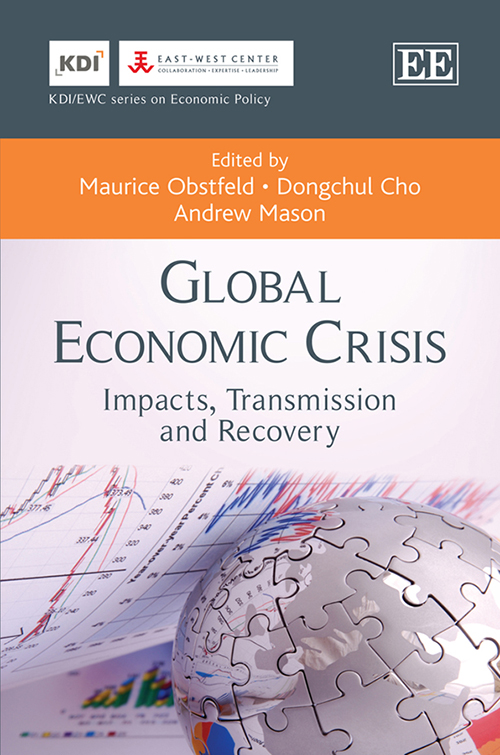Navigating the Storm: A Guide to Preparing for Financial Crises in a Globalized World

As the world becomes increasingly interconnected, the risk of financial crises spreading across borders grows. The 2008 global financial crisis, the COVID-19 pandemic, and recent economic downturns have shown us that no country is immune to the effects of economic turmoil. To protect your financial well-being, it’s essential to be prepared for the unexpected. In this article, we’ll explore the steps you can take to prepare for financial crises in a globalized world.
Understanding Financial Crises: Causes and Consequences
Before we dive into the preparation strategies, let’s quickly review what causes financial crises and their consequences. A financial crisis occurs when there is a significant disruption to the financial system, leading to a decline in economic activity, asset values, and investor confidence.
Some common causes of financial crises include:
- Over-reliance on debt
- Imbalance in global trade
- Asset bubbles (e.g., housing, stocks)
- Government policies and regulations
- Global events (e.g., pandemics, wars)
The consequences of financial crises can be severe and far-reaching, including:
- Job losses and unemployment
- Reduced economic growth
- Decreased consumer spending
- Increased poverty and income inequality
- Decreased asset values (e.g., homes, stocks)
Building a Financial Safety Net

Preparing for financial crises starts with building a strong financial foundation. Here are some steps to help you create a safety net:
- Emergency Fund: Save 3-6 months’ worth of living expenses in a readily accessible savings account. This fund will help you weather financial storms, such as job loss or unexpected expenses.
- Diversify Your Income: Reduce your reliance on a single income source by exploring alternative revenue streams, such as freelancing, part-time jobs, or starting a side business.
- Pay Off High-Interest Debt: Focus on paying off high-interest debt, such as credit card balances, to free up more money in your budget for savings and investments.
- Invest Wisely: Diversify your investments to minimize risk. Consider a mix of low-risk investments (e.g., bonds, CDs) and higher-risk investments (e.g., stocks, real estate).
Diversifying Your Investments
Diversification is key to managing risk in your investment portfolio. Here are some strategies to help you diversify:
- Global Diversification: Invest in assets from different countries and regions to spread risk.
- Asset Allocation: Allocate your investments across various asset classes, such as stocks, bonds, real estate, and commodities.
- Low-Correlation Investments: Invest in assets that are less correlated with each other, such as gold or cryptocurrencies.
- Passive Investing: Consider using index funds or ETFs to gain broad market exposure while minimizing fees.
Preparing for Currency Fluctuations
Currency fluctuations can significantly impact your investments and purchasing power. Here are some strategies to help you prepare:
- Currency Diversification: Hold a portion of your savings in foreign currencies to reduce risk.
- Hedging: Consider using hedging strategies, such as options or futures contracts, to mitigate currency risk.
- Local Currency Investing: Invest in local currencies to align your investments with your purchasing power.
Staying Informed and Adaptable
In a rapidly changing world, it’s essential to stay informed and adaptable. Here are some strategies to help you stay ahead of the curve:
- Follow Financial News: Stay up-to-date with financial news and trends to anticipate potential risks.
- Diversify Your Information Sources: Seek information from multiple sources, including news outlets, financial experts, and alternative media.
- Be Prepared to Adapt: Be prepared to adjust your investment strategy or emergency fund in response to changing economic conditions.
Preparing for the Worst-Case Scenario
While it’s unlikely, worst-case scenarios can occur. Here are some steps to help you prepare for extreme financial disruption:
- Cash Reserves: Hold a portion of your savings in cash to maintain liquidity in case of an emergency.
- Food and Water Storage: Consider stockpiling essential supplies, such as food and water, in case of extreme disruptions.
- Community Network: Build a network of friends, family, and neighbors to support each other in times of need.
Conclusion
Preparing for financial crises in a globalized world requires a proactive approach. By building a financial safety net, diversifying your investments, preparing for currency fluctuations, staying informed and adaptable, and preparing for the worst-case scenario, you’ll be better equipped to navigate the challenges of a rapidly changing world.
Don’t wait until it’s too late. Take the first step today by assessing your financial preparedness and making adjustments as needed. Share this article with your friends and family to help them prepare for the unexpected.
Share Your Thoughts
Have you experienced a financial crisis in the past? What steps do you take to prepare for financial uncertainty? Share your thoughts and experiences in the comments below.
Share This Article
Help spread the word about the importance of financial preparedness. Share this article on social media, via email, or with your network to encourage others to take control of their financial well-being.


